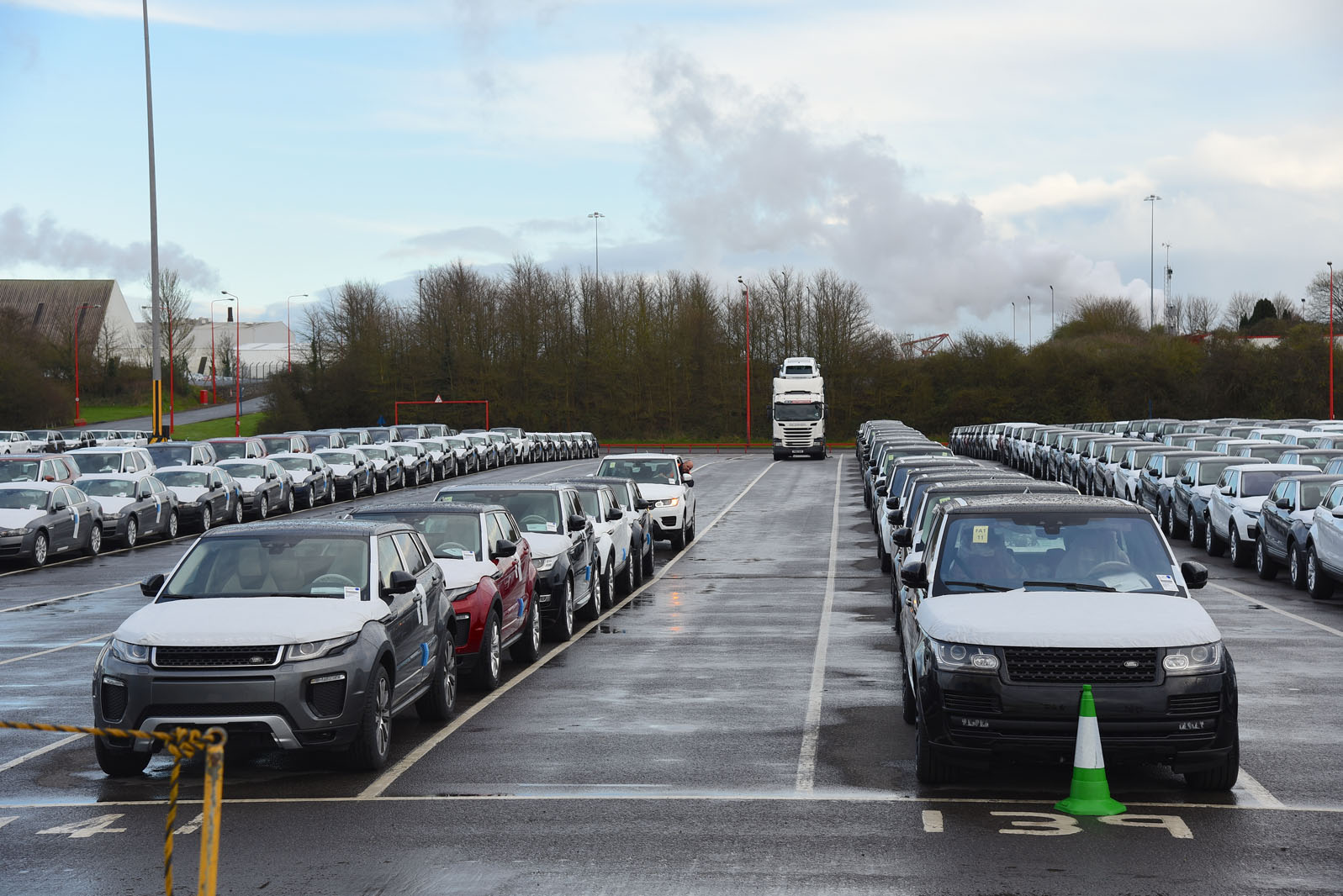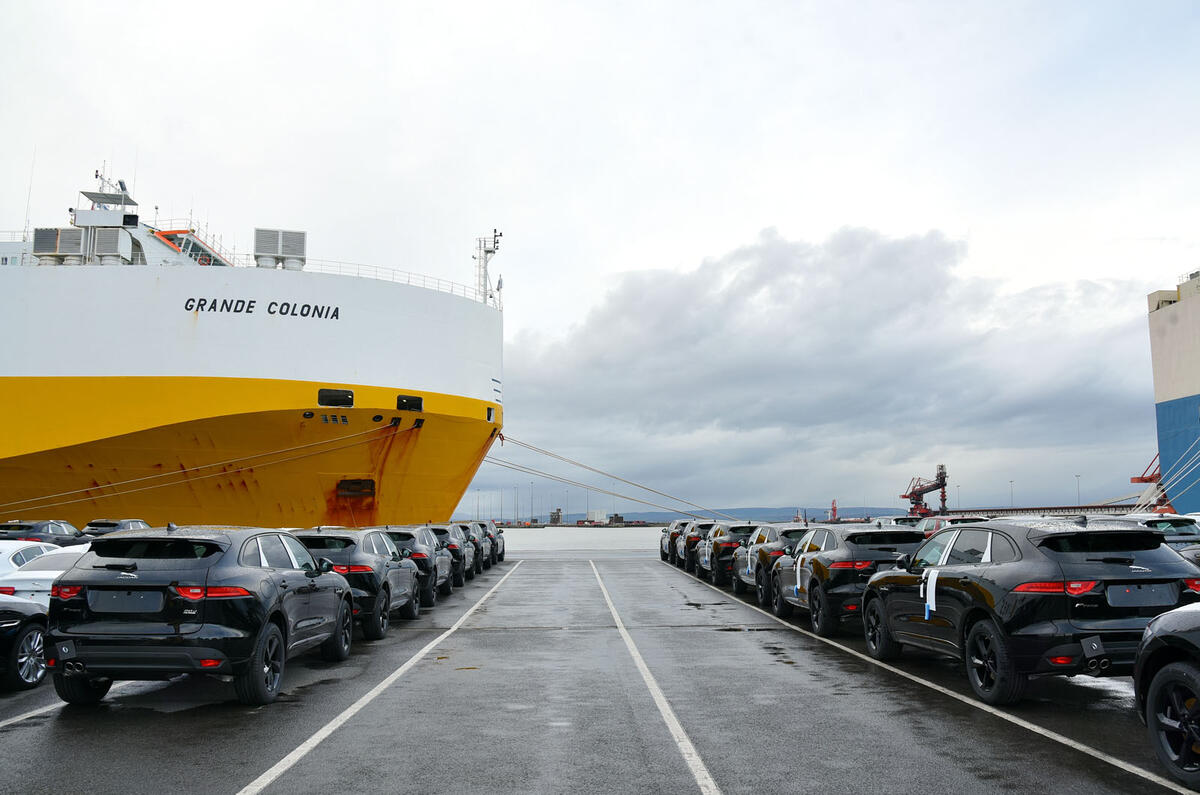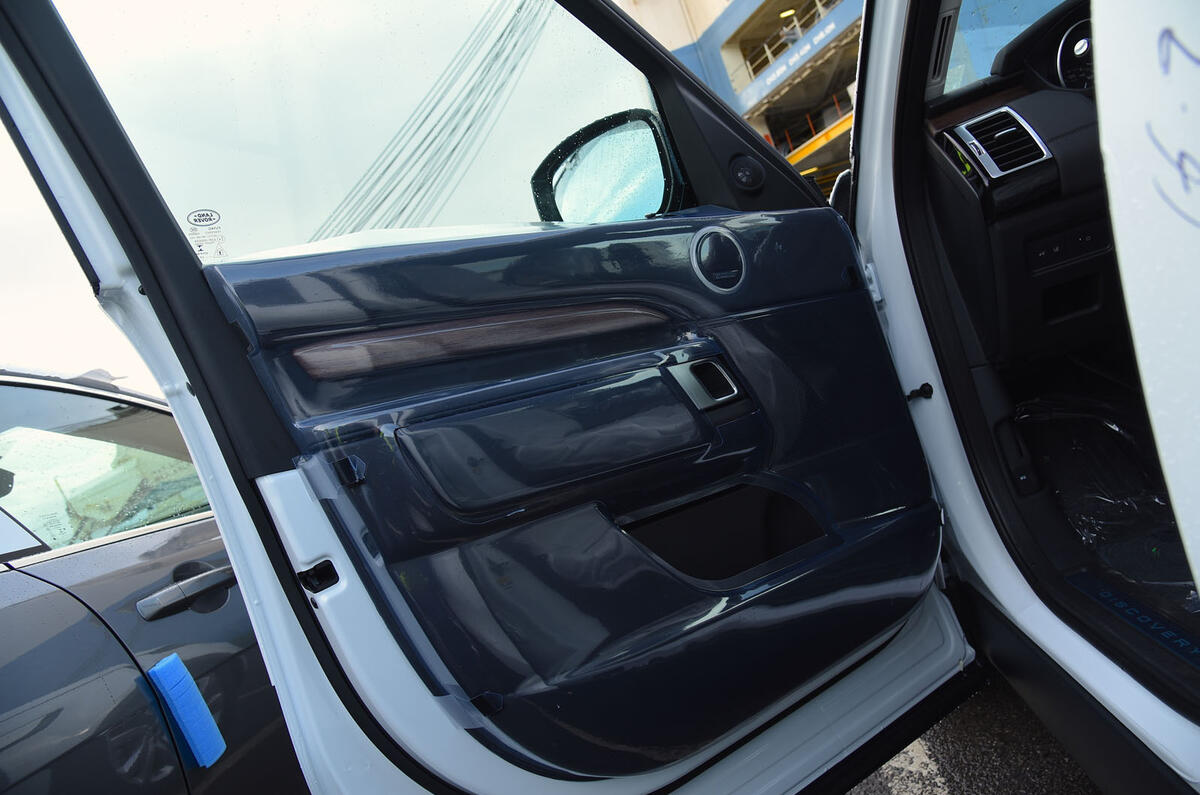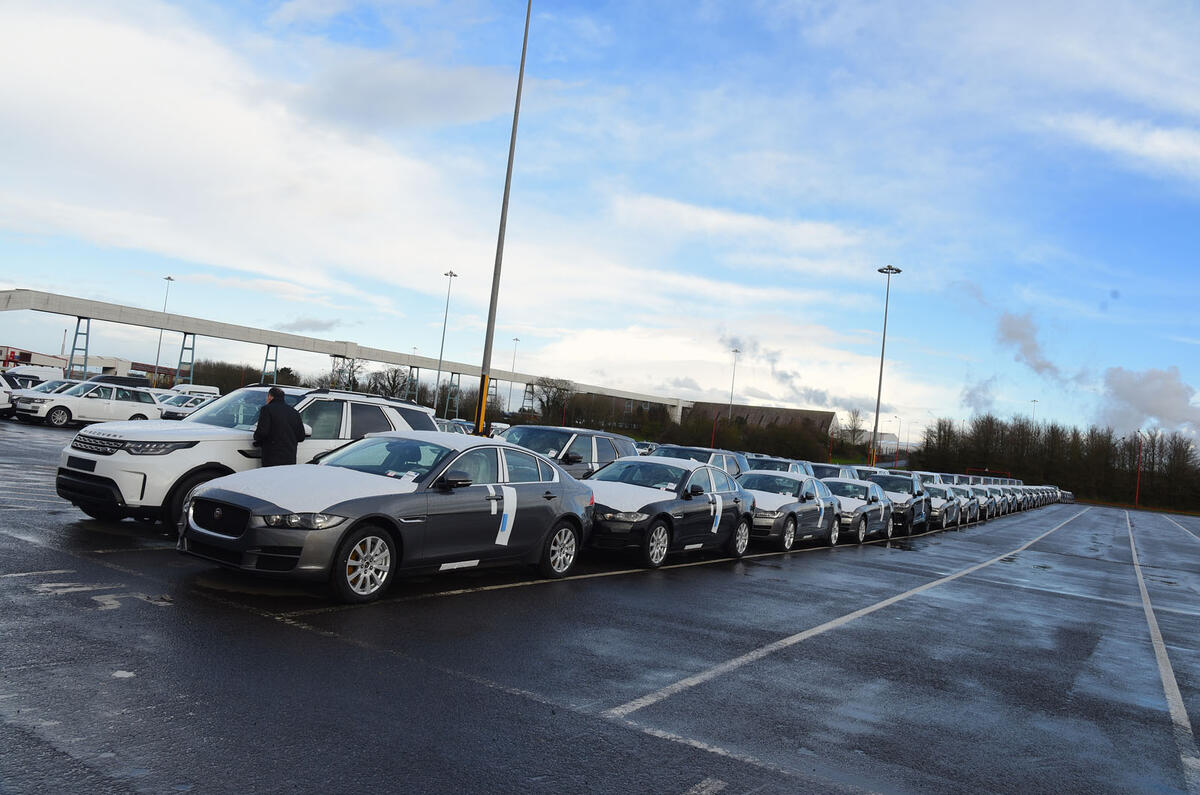The word ‘Sold’ said it all. It was on every embarkation document, laid carefully on the top of each car’s dashboard.
New model Land Rover Discoverys, Range Rovers, Evoques, and Jaguar F-Types, Jaguar F-Paces, Jaguar XEs and Jaguar XFs: they all proclaimed it. A good thing, too. You wouldn’t want to travel for 10 days and 2352 nautical miles from Bristol’s Royal Portbury Dock to Livorno, on the northwest coast of Italy, without a home to go to.

Last year British-built cars had no shortage of places to lay their hat. More than 1.35 million were shipped worldwide from the UK – a record figure. More than half of those were exported to Europe. In terms of sales, Nissan led the way with the Qashqai; the JLR group also performed well.
And here, on one day in the middle of March this year, were more of JLR’s finest, waiting in Bristol to be driven aboard the car carrier Grande Napoli, their door shuts protected by blocks of foam and their bodies by large sheets of tough paper. Inside, their steering wheels and seats were swaddled in still more of the stuff, their floors in plastic and – this is attention to detail – their door panels protected by moulded plastic that fitted like a second skin.
Turning my gaze back to the outside of one Discovery, I wondered why the end caps from the door handles were missing. A contretemps with a stevedore, perhaps?
“No,” says Andy Bates, the operations manager. “They have been removed, along with other vulnerable items, and put in the car for safe-keeping.”
What about the sticker on some cars showing a suspension coil?
“That’s to remind the technicians at the other end that the suspension is tied down for the crossing,” he says.

All of the JLR cars are limited to 2000rpm, too, “so the drivers can’t rev the nuts off the engine”. If you’re a frequent flyer on the M5 where it crosses the River Avon near Bristol, you’ll be familiar with Royal Portbury Dock. It’s on the left bank of the river as you head south, with Avonmouth and Royal Edward docks on the right. All three are owned by the Bristol Port Company (BPC), which bought them from Bristol City Council in 1991.
Together they cover 2600 acres, but it’s the 450 acres set aside for car parking at Royal Portbury (there’s another 100 acres at Avonmouth and Royal Edward) that interests me. Those endless lines of car roofs, glinting in the sun, although more often dulled by grey clouds, are a sight to behold. Look at the area nearest the bridge as you cross it going south and, assuming the few compounds you can see are full, you’re looking at around 16,000 cars.












































Join the debate
Add your comment
Hilux.
British-built Cars???
jagdavey wrote:
They did mention Fiats, though wrongly suggested they were imported from Italy...
WallMeerkat wrote:
The last pic, shows a FIAT 124 SPIDER being driven off the ship.
(made by MAZDA in Japan)
No apostrophies needed in plurals
I thought Corsas came from Spain.
British-built Cars???